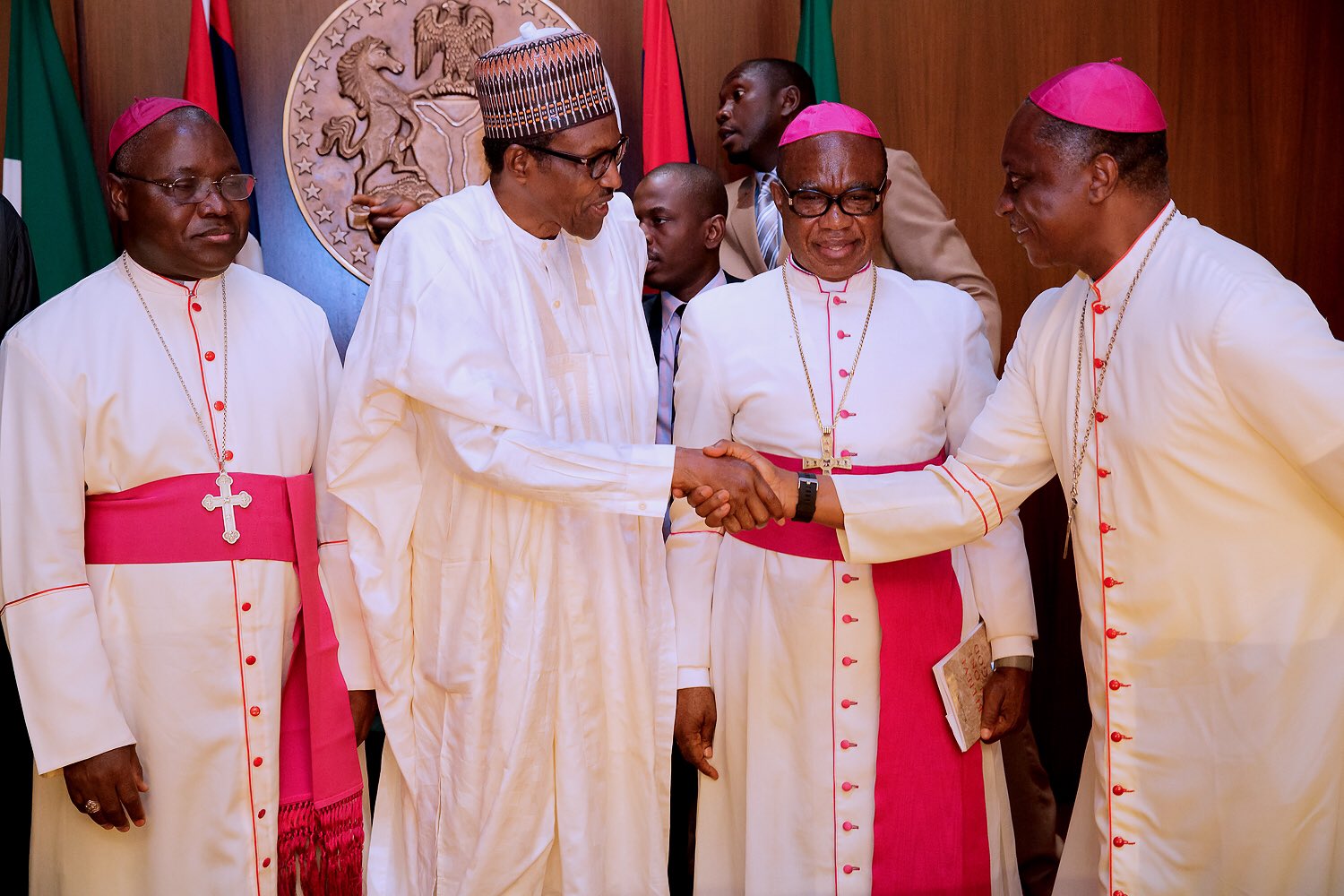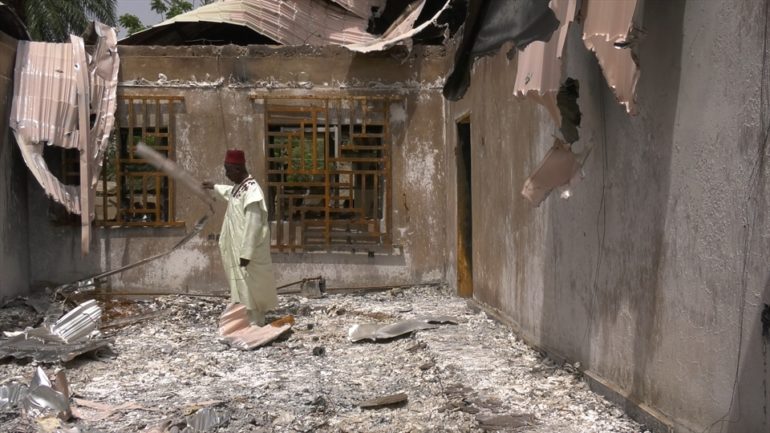
Nigeria’s Catholic bishops have told President Muhammadu Buhari that attacks attributed to members of the Fulani pastoralist tribe have been carried out by “terrorists masquerading as herdsmen” and accused the government of being “incapable or unwilling” to protect citizens from them.
A delegation of 11 bishops delivered a strongly worded message on behalf of the Nigerian bishops’ conference during a meeting yesterday (8 February). These attacks “have led to a near civil war situation in many parts of the country”, they asserted.
Attacks attributed to Fulani herdsmen on the properties of agriculturalists in the country’s Middle Belt have become increasingly common in recent years.
However, observers have voiced concern that in recent months, the assailants have been armed with AK47s and other expensive weaponry, rather than just machetes, suggesting that they are receiving external funding.
Many experts on Nigeria now believe that the violence across the Middle Belt, which World Watch Monitor has reported on at length, has been responsible for more deaths than Boko Haram.
The bishops went on: “Innocent citizens in different communities across the nation are brutally attacked and their sources of livelihood mindlessly destroyed.
“Property, worth billions of Naira, including places of worship, schools, hospitals and business enterprises, are torched and turned to ashes.
“We are still more saddened by the recent massacre of unarmed citizens by these terrorists in some communities in Benue, Adamawa, Kaduna and Taraba states, which has caused national shock, grief and outcry.”

Yet they said “the government, whose responsibility it is to protect the life and property of every citizen, seems either incapable or unwilling to do this. The silence of the federal government … is, to say the least, shocking”.
They warned the president, a member of the Fulani tribe: “There is … the danger that some people may begin to take laws into their hands.”
The goodwill that existed when President Buhari entered office “is being fast depleted by some glaring failures of government which we have the moral duty to bring to your notice”, the message continued. It was signed by conference President Archbishop Ignatius Kaigama and Secretary Bishop William Avenya.
The bishops urged the president to adopt grazing solutions for the herdsmen – already in force in some states – in tandem with plans to help agriculturalists.
The bishops warned that the government’s failure to adequately address issues such as poverty, joblessness, and violence had led some young people to place themselves in the hands of people-traffickers.
Today I met with the Catholic Bishops Conference of Nigeria (CBCN), led by Archbishop Ignatius Kaigama. It was a welcome opportunity for me to explain in detail what we’re doing as a Government to bring permanent resolution to herdsmen-farmers conflicts & violence across Nigeria. pic.twitter.com/9duVmArpTq
— Muhammadu Buhari (@MBuhari) February 8, 2018
Meanwhile a Catholic bishop who specialises in peacebuilding work has said that replacing the president is not a solution for Nigeria’s woes and could worsen divisions within the country.
Bishop Matthew Kukah of Sokoto made his comments after former president Olesegun Obasanjo, 80, advised Buhari not to seek a second term next year, accusing him of a litany of failures, including his handling of the herdsmen violence, and stating that he should leave office.
Obasanjo expressed his view in a scathing 13-page open letter to Buhari. Since then he has called for the establishment of a third force, which he called the ‘Coalition for Nigeria’, to remedy ills that have not been resolved through the existing two-party system.
The bishop, who runs a policy research institute – The Kukah Centre – aimed at reducing social tensions, was doubtful about Obasanjo’s proposal. He told journalists yesterday: “If you are unhappy with your party members or have failed elections and the next thing is to form a coalition, that won’t help our politics or democracy.
“We need to be introspective, because every time we create [a] new platform we create new enemy lines.”
He added: “If every time you have problem in your marriage you go ahead to marry a new wife, how many wives will you end up marrying? The solution to bad marriage is not a new marriage… I am talking as a Catholic priest.”